Novak Djokovic: From Humble Beginnings to Tennis Legend
Updated on : 15 January, 2025
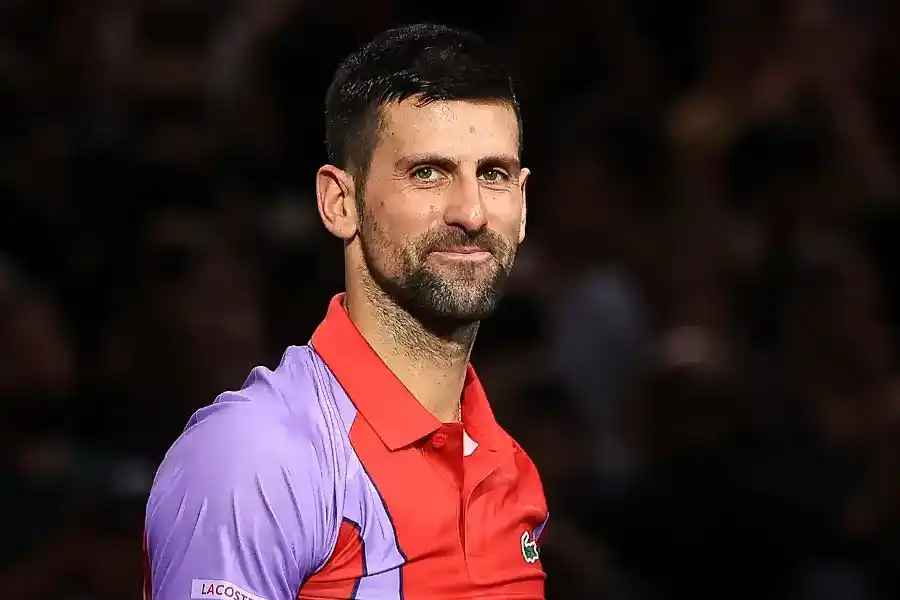
Image Source: tennis365.com
Introduction
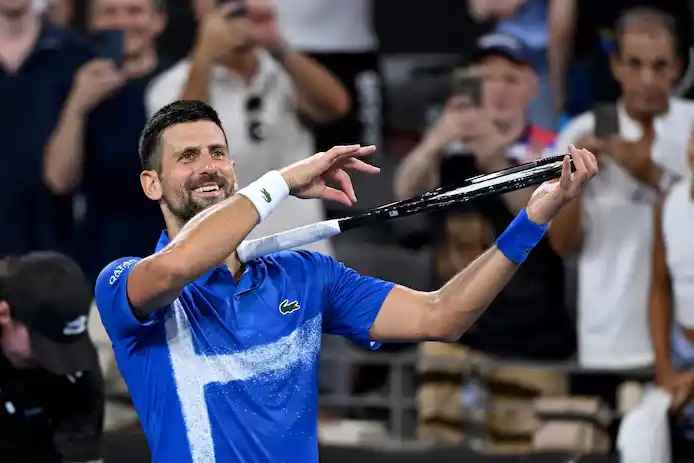
Image Source: myprivacy.dpgmedia.be
Novak Djokovic, born on May 22, 1987, in Belgrade, Serbia, has emerged as a monumental figure in the world of tennis. His journey from a young boy practicing on the streets of war-torn Serbia to becoming a record-breaking champion is not merely a tale of athletic prowess but also one of resilience, determination, and an unyielding spirit.
Djokovic's significance in tennis is highlighted by his impressive record: he has won 24 Grand Slam singles titles, more than any other male player in history, including a record 10 Australian Open titles. His achievements have not only redefined the standards of excellence in men's tennis but have also inspired countless aspiring athletes worldwide. Djokovic is recognized for being the only man in tennis history to hold all four major titles simultaneously across three different surfaces and for achieving a triple Career Grand Slam, winning each major at least three times.
Early Life
Birth and Family Background
Novak Djokovic was born into a modest family on May 22, 1987, in Belgrade, Serbia. His father, Srdjan, operated a restaurant, while his mother, Dijana, was a former professional skier. The family faced numerous challenges during the Yugoslav Wars, which significantly influenced Djokovic's upbringing. Despite the turmoil, his parents instilled in him strong values of hard work and perseverance. They supported his passion for tennis from a young age, recognizing his potential amidst the difficulties. Djokovic's family background played a crucial role in shaping his character and determination to succeed in the face of adversity.
Early Introduction to Tennis
Djokovic's love for tennis ignited at the tender age of four when his father gifted him a mini-racket and a ball, which became "the most beloved toy" in his life. He quickly demonstrated promise, practicing tirelessly at local clubs while managing his schoolwork. By the age of six, he attended a tennis camp organized by the Teniski Klub Partizan, where he trained under the guidance of Yugoslav tennis player Jelena Genčić. This early introduction to the sport laid the foundation for Djokovic's future success, as he honed his skills and developed a competitive spirit that would propel him to greatness.
Challenges During Childhood in Serbia
Growing up in Serbia during the turbulent years of conflict presented significant obstacles for young Novak. The high cost of training camps forced his parents to take out loans to support his budding career, hoping that their sacrifices would lead to success. The backdrop of war meant that Djokovic often trained in makeshift conditions, including a disused swimming pool converted into a tennis court. Despite these challenges, he remained focused and determined to excel. The hardships he faced during this period fueled his ambition and resilience, ultimately shaping him into one of the greatest tennis players in history.
Popular Blogs
Junior Career
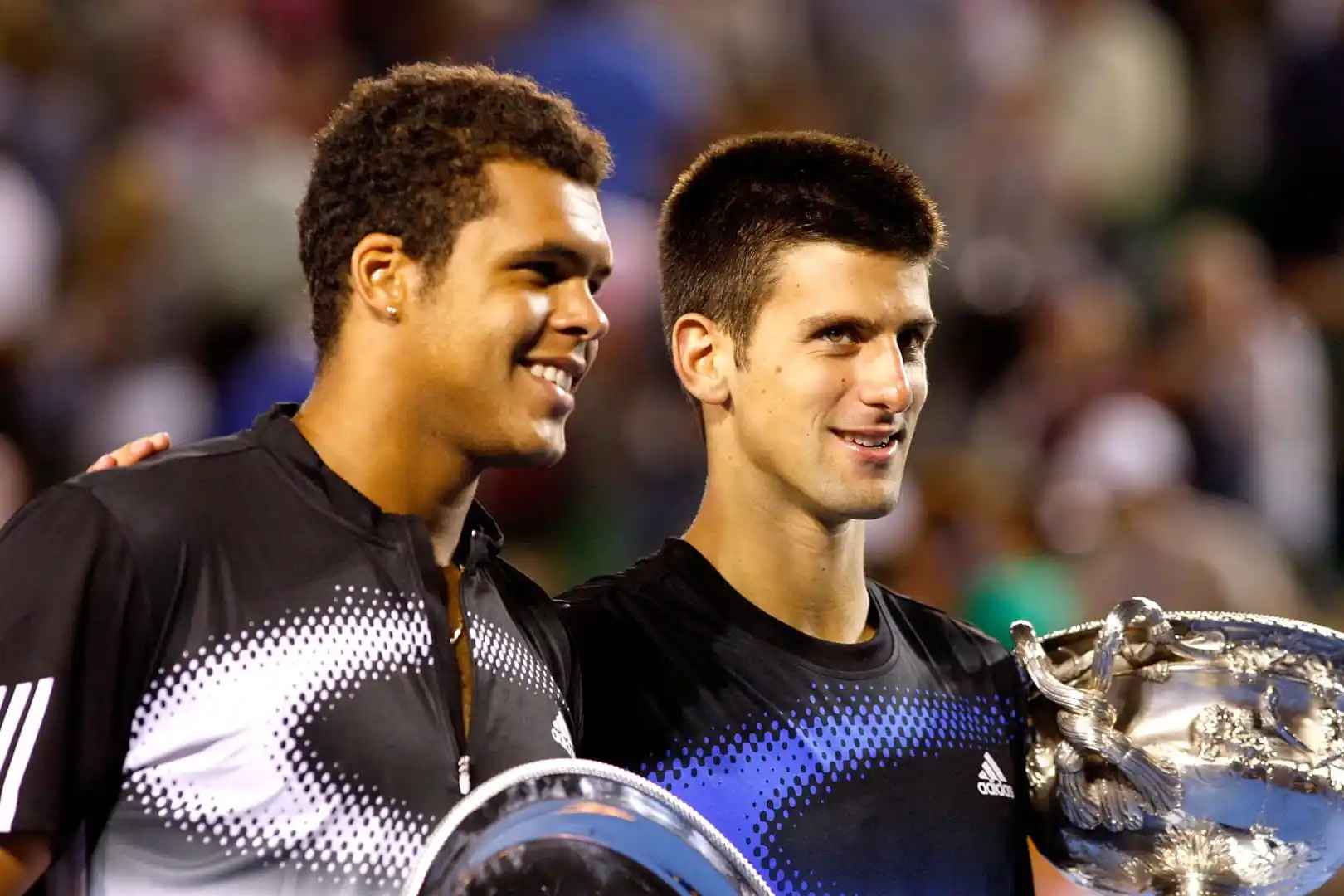
Image Source: tennis.com
Rise Through Junior Ranks
Novak Djokovic's talent became evident as he progressed through the junior ranks, where he consistently outperformed his peers. By the age of 14, he was recognized as Europe’s top-ranked player in his age group. His dedication and hard work paid off when he began competing internationally, showcasing his skills in various tournaments. In 2001, Djokovic dominated the U14 circuit of the ETA Junior Tour, winning both singles and doubles titles at the European Championships. This early success laid a strong foundation for his future career, as he transitioned smoothly into more competitive environments.
Notable Achievements as a Junior Player
During his junior career, Djokovic achieved several notable milestones that established him as one of the top young talents in the sport. In addition to winning multiple national titles, he claimed victories at prestigious junior tournaments across Europe. His most significant achievement came in 2001 when he led the Serbian team to victory in the European Summer Cup and finished the year ranked No. 1 in the ETA rankings for U14s. Djokovic also reached the semifinals at the Australian Open junior event in 2004, further solidifying his status as a rising star. These accomplishments not only highlighted his exceptional skills but also paved the way for his eventual transition to professional tennis.
| Year | Achievements | Details |
|---|---|---|
| 2001 | Dominated U14 Circuit | Won the ETA Junior Tour, including titles in Messina and Livorno, defeating future rival Andy Murray. Led the Serbian team to victory in the European Summer Cup. |
| 2002 | Continued Success in U16 Circuit | Won prestigious tournaments like the Derby Cadets and Le Pontet, and his first ITF tournament in Pančevo, defeating older opponents. |
| 2003 | Transition to Professional Tennis | Entered the top 100 of the ATP rankings by age 18, showcasing his readiness for professional competition. |
| 2004 | Semifinalist at Australian Open Juniors | Reached the semifinals at the Australian Open junior event, further establishing his reputation as a rising star in tennis. |
Professional Debut
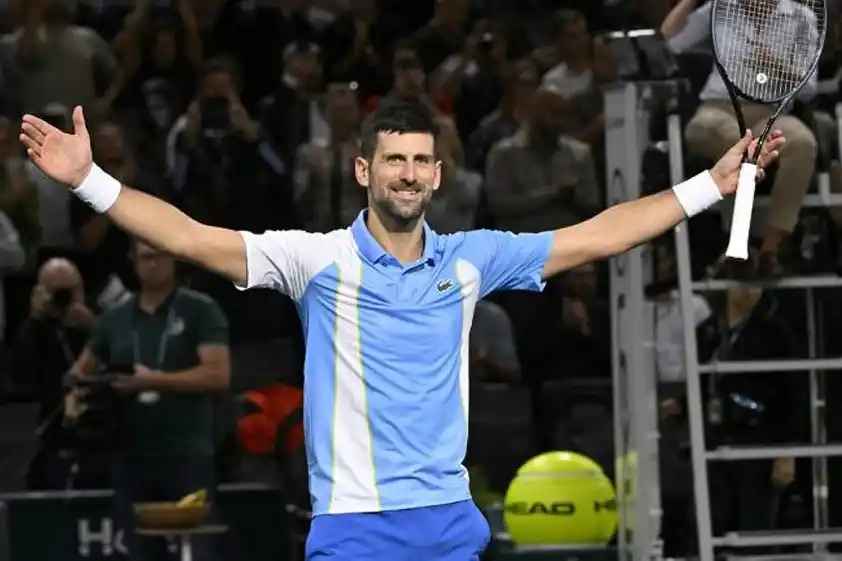
Image Source: blibli.com
Entry into Professional Tennis (2003)
Novak Djokovic turned professional at just 15 years old in 2003, embarking on a journey that would see him face some of the best players in the world. His first match came in January 2003 at a Futures event in Germany, where he lost to Alex Rădulescu. However, he quickly gained momentum, receiving wildcards to participate in several tournaments. By June, he achieved his first victory at a Futures event in Belgrade, defeating the No. 4 seed and securing his first world ranking of No. 767. This early experience laid the groundwork for his future success on the professional circuit.
First ATP Challenger Title (2004)
In May 2004, Djokovic won his first ATP Challenger title in Budapest at the age of 17, defeating Daniele Bracciali in the final without dropping a set. This victory was a significant milestone that marked his entry into professional tennis and showcased his potential as a rising star. Following this triumph, he qualified for his first ATP Tour event at the Croatia Open Umag, where he continued to build on his success. By the end of 2004, Djokovic had climbed into the world's Top 200, finishing the year ranked No. 186.
| Year | Milestone | Details |
|---|---|---|
| 2003 | Turned Professional | Djokovic turned pro at age 15 and played his first match in January, losing to Alex Rădulescu. |
| 2003 | First Victory | Achieved his first win at a Futures event in Belgrade, gaining a ranking of No. 767. |
| 2004 | First ATP Challenger Title | Won his first ATP Challenger title in Budapest on May 11, defeating Daniele Bracciali. |
| 2004 | Qualified for ATP Tour Event | Qualified for the Croatia Open Umag, marking his entry into higher-level competition. |
| 2004 | End of Year Ranking | Finished the year ranked No. 186 in the world, entering the Top 200 for the first time. |
Breakthrough Year (2008)
Winning the Australian Open
The year 2008 was pivotal for Novak Djokovic as he clinched his first Grand Slam title at the Australian Open by defeating Jo-Wilfried Tsonga in the final. Djokovic won the match with a score of 4-6, 6-4, 6-3, 7-6(2), showcasing his resilience by coming back from a set down. This victory not only elevated his ranking but also made him a household name in tennis. At just 20 years old, Djokovic became the youngest winner of the Australian Open, marking a significant milestone in his career and setting the stage for future successes.
Impact on Serbian Tennis
Djokovic's triumph had profound implications for Serbian tennis, inspiring many young athletes in a country that had faced significant hardships. His success fostered a new generation of tennis talent, encouraging aspiring players to pursue their dreams on the international stage. The victory served as a beacon of hope and pride for Serbia, uniting fans and athletes alike. Djokovic's achievements have since contributed to the rise of Serbian tennis, with more players emerging on the global scene, motivated by his groundbreaking accomplishments.
| Milestone | Details |
|---|---|
| First Grand Slam Title | Won Australian Open in 2008, defeating Jo-Wilfried Tsonga. |
| Match Score | 4-6, 6-4, 6-3, 7-6(2) |
| Age at Victory | 20 years old; youngest winner of the Australian Open. |
| Impact on Serbian Tennis | Inspired young athletes and fostered a new generation of talent. |
Establishing Dominance (2010-2016)
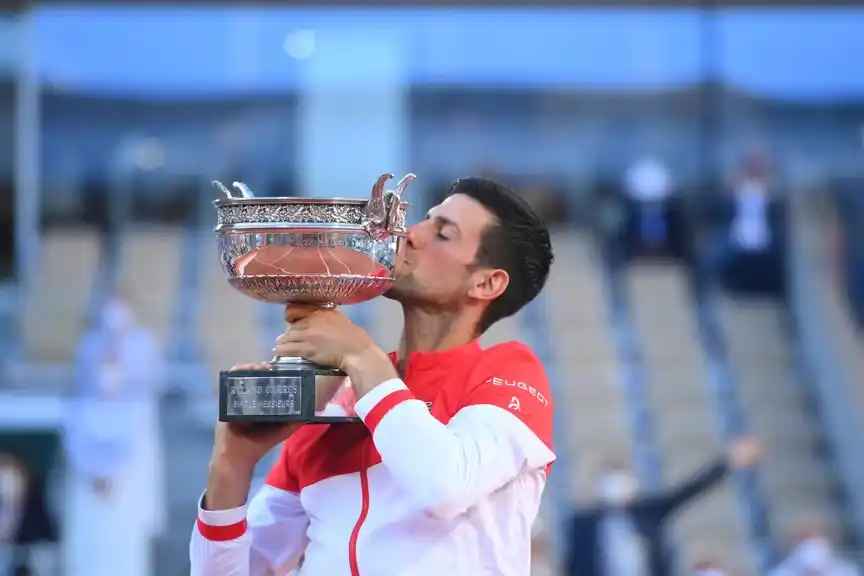
Image Source: thebridgechronicle.com
Rise to World No. 1
From 2010 onwards, Novak Djokovic began to separate himself from other players on tour, culminating in his first ascent to World No. 1 on July 4, 2011, after winning three Grand Slam titles that year. His remarkable performance included a 41-match winning streak at the start of the season and victories at the Australian Open, Wimbledon, and the US Open. This achievement marked a significant turning point in his career, solidifying his status as a dominant force in men's tennis. Djokovic's ascent to the top was characterized by a blend of skill, mental fortitude, and an unwavering commitment to excellence.
Key Victories and Records During This Period
During this period, Djokovic set numerous records, including winning three Grand Slam titles in both 2011 and 2015. He achieved an unprecedented non-calendar year Grand Slam by holding all four major titles simultaneously—an accomplishment that had not been seen in men's tennis for decades. Notably, he won ten tournaments in 2011 alone, including five Masters Series 1000 titles. Djokovic's dominance was further highlighted by his impressive head-to-head records against rivals like Rafael Nadal and Roger Federer, where he ended the year with a remarkable 10–1 record against them.
| Year | Milestone | Details |
|---|---|---|
| 2010 | Rise Begins | Started separating from other players on tour. |
| 2011 | First World No. 1 | Achieved on July 4 after winning three Grand Slams. |
| 2011 | Winning Streak | Recorded a **41-match winning streak** at the year's start. |
| 2011 | Grand Slam Titles | Won Australian Open, Wimbledon, and US Open. |
| 2011 | Masters Series Victories | Won five Masters Series 1000 titles during the season. |
| 2015 | Non-Calendar Year Grand Slam | Held all four major titles simultaneously. |
Grand Slam Achievements
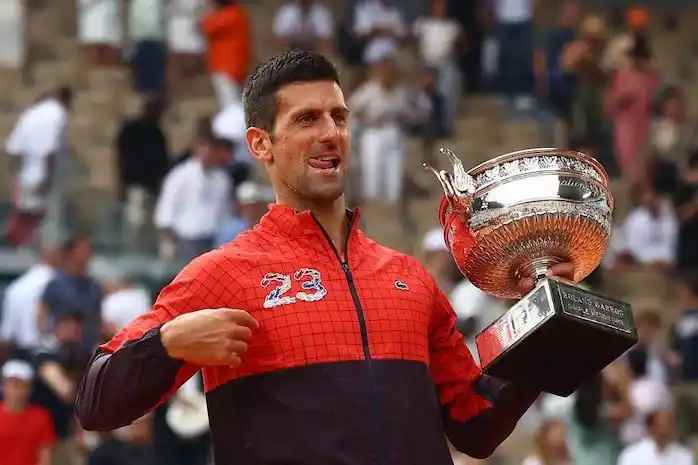
Image Source: business-standard.com
List of Grand Slam Titles Won
| Tournament | Titles Won | Years |
|---|---|---|
| Australian Open | 10 titles | 2008, 2011-2013, 2015-2016, 2019-2021 |
| French Open | 3 titles | 2016, 2021-2023 |
| Wimbledon | 7 titles | 2011-2012, 2014-2015, 2018-2019 |
| US Open | 4 titles | 2011, 2015-2018 |
Historical Significance of These Titles
Djokovic's ability to win across all surfaces has made him one of only two men to achieve a Career Grand Slam multiple times—a testament to his versatility and skill as a player. His record of 24 Grand Slam titles places him at the pinnacle of tennis history, reflecting his dominance and consistency in the sport. Additionally, he holds the record for the most Grand Slam finals appearances with 37, underscoring his sustained excellence over the years.
The Big Three Rivalry
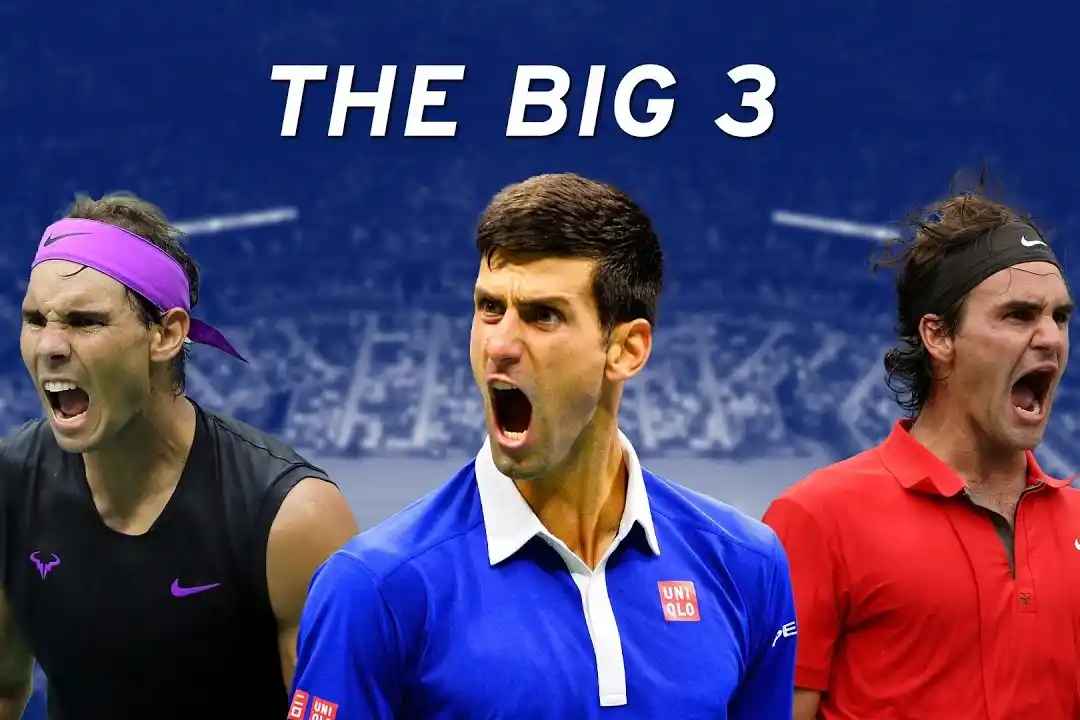
Image Source: thesportsrush.com
Overview of Rivalries with Federer and Nadal
Novak Djokovic's rivalries with Roger Federer and Rafael Nadal have defined an era in men's tennis known as the "Big Three." These rivalries are regarded as some of the greatest in tennis history, showcasing intense competition and remarkable matches. Nadal considers Federer his biggest rival due to their historical encounters, while he acknowledges Djokovic as an "incredible challenge," highlighting the unique dynamics each rivalry brings to the sport. Djokovic himself has expressed pride in being part of this legendary era, which has captivated fans worldwide.
Notable Matches and Their Outcomes
Memorable encounters between these three players include:
- Wimbledon Finals: Djokovic and Federer faced off in the 2019 Wimbledon final, which became the longest singles final in Wimbledon history, with Djokovic winning in a thrilling fifth-set tiebreak.
- Grand Slam Tournaments: The trio has contested numerous Grand Slam finals, including multiple encounters between Djokovic and Nadal at the French Open and between Djokovic and Federer at the US Open.
- Head-to-Head Records:
- Djokovic vs. Nadal: 60 total matches; Djokovic leads 31–29, with Nadal winning 11 of 18 Grand Slam meetings.
- Djokovic vs. Federer: 50 total matches; Djokovic leads 27–23, including a significant 13–6 in finals.
Playing Style and Strengths
Analysis of Djokovic's Playing Techniques
Novak Djokovic is known for his exceptional baseline play, characterized by powerful groundstrokes and precise shot placement. His playing style combines remarkable agility with a superior return of serve, often regarded as one of the best in the tennis world. Djokovic's ability to anticipate and read the game allows him to position himself perfectly, neutralizing even the most powerful serves from his opponents. His lightning-quick reflexes, coupled with his flexibility and extraordinary reaching ability, make him a formidable opponent, ensuring he is never out of a point. This combination of skills contributes to his effectiveness as a disciplined offensive baseliner who can also counterpunch when necessary.
Mental Toughness and Physical Endurance
Djokovic's ability to perform under pressure is legendary; he possesses an extraordinary mental fortitude that allows him to thrive during crucial moments in matches. His resilience and focus enable him to maintain composure in high-stakes situations, often turning matches in his favor. This mental strength is complemented by his physical endurance, allowing him to outlast opponents in grueling rallies and matches. Djokovic's commitment to fitness and conditioning has been pivotal in his success, enabling him to compete at the highest level consistently over long tournaments.
Major Records Held
Weeks at No. 1 in ATP Rankings
As of January 2025, Novak Djokovic holds the record for most weeks ranked No. 1 in ATP history with over 428 weeks, showcasing his sustained excellence over time. This achievement highlights his dominance in men's tennis, as he has spent approximately 64.9% of the time since first reaching No. 1 on July 4, 2011. Djokovic's remarkable consistency has set him apart from other greats, with Roger Federer and Pete Sampras trailing significantly behind.
Career Golden Masters and Other Records
Djokovic is also the only player to achieve a Career Golden Masters, winning all nine ATP Masters events at least once. This accomplishment underscores his unparalleled versatility across different tournament formats. Additionally, he has won a total of 24 Grand Slam titles, further solidifying his legacy as one of the greatest players in tennis history.
| Record | Details |
|---|---|
| Weeks at No. 1 | Over 428 weeks ranked No. 1 (as of Jan 2025). |
| First Achieved No. 1 | July 4, 2011 |
| Percentage of Time at No. 1 | Approximately 64.9% since first reaching No. 1. |
| Career Golden Masters | Only player to win all nine ATP Masters events. |
| Total Grand Slam Titles | 24 titles, most in men's tennis history. |
Olympic Success
Overview of Olympic Participation and Achievements
Novak Djokovic has represented Serbia at four Olympic Games: 2008, 2012, 2016, and most recently in 2024. Throughout these appearances, he earned a bronze medal at the 2008 Beijing Olympics and faced challenges in subsequent tournaments, including finishing fourth in London and Tokyo. His participation has been marked by determination and a quest for Olympic glory.
Winning the Gold Medal
In July 2024, at the Paris Olympics, Djokovic finally secured an Olympic gold medal after defeating Carlos Alcaraz in the men's singles final with a score of 7-6(3), 7-6(2). This victory was a crowning achievement, completing his career "Golden Slam," as he became one of the few players to win all four Grand Slam titles and an Olympic gold medal in singles. Djokovic's emotional celebration on the court highlighted the significance of this victory, marking it as one of the greatest achievements of his illustrious career.
| Year | Event | Achievement |
|---|---|---|
| 2008 | Beijing Olympics | Bronze Medal (Men's Singles) |
| 2012 | London Olympics | Finished Fourth (Men's Singles) |
| 2016 | Rio de Janeiro Olympics | Finished Fourth (Men's Singles) |
| 2024 | Paris Olympics | Gold Medal (Men's Singles) |
Impact on the Sport
Contributions to Tennis and Sportsmanship
Novak Djokovic’s sportsmanship has set high standards within professional tennis; he is widely recognized for promoting fair play and advocating for player rights through various initiatives. His approach to competition emphasizes respect for opponents and the integrity of the sport. Djokovic has consistently demonstrated exemplary behavior on and off the court, often seen supporting fellow players and engaging in positive interactions, which has helped foster a culture of sportsmanship in tennis. His actions have earned him admiration from fans and peers alike, showcasing that excellence in tennis extends beyond athletic performance.
Influence on Future Generations of Players
Djokovic's journey serves as an inspiration for aspiring athletes around the world—demonstrating what can be achieved through hard work and dedication despite facing adversity. His rise from humble beginnings in Serbia to becoming one of the greatest tennis players in history illustrates the importance of resilience and determination. Many young players look up to Djokovic not only for his achievements but also for his commitment to improving the sport and supporting others. His legacy encourages future generations to pursue their dreams with passion and integrity, reinforcing the idea that success is attainable through perseverance.
Personal Life
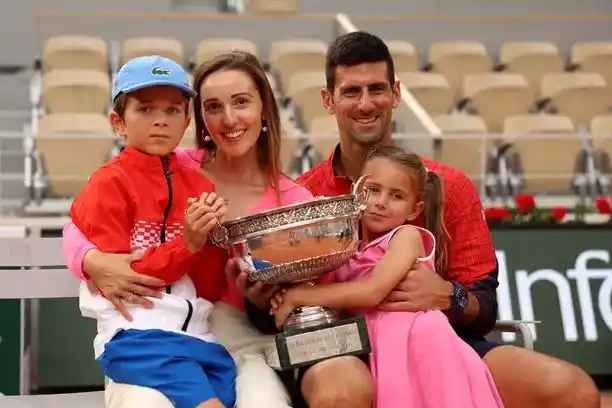
Image Source: i2-prod.mirror.co.uk
Family, Interests, and Philanthropic Efforts
Novak Djokovic is married to Jelena Djokovic (née Ristić), with whom he has two children: Stefan, born in October 2014, and Tara, born in September 2017. The family resides in Monte Carlo, Monaco. In 2007, Djokovic and Jelena founded the Novak Djokovic Foundation, which focuses on improving education for disadvantaged children in Serbia, providing resources to help them lead productive lives. Beyond philanthropy, Djokovic is passionate about nutrition and wellness advocacy, promoting healthy lifestyles both for himself and his family.
Insights Into His Life Off the Court
Off the court, Djokovic enjoys spending quality time with his family and often shares glimpses of his personal life through social media. He describes his children as "my angels" and emphasizes the joy they bring to his life. Djokovic has expressed feelings of guilt regarding time spent away from his family due to tennis commitments, highlighting the challenges professional athletes face in balancing career and family life. He actively encourages an active lifestyle for his children, introducing them to various activities such as music—his daughter Tara plays the violin while Stefan enjoys the guitar. Djokovic's lighthearted personality often shines through in his interactions with his family, showcasing a loving and supportive home environment.
| Aspect | Details |
|---|---|
| Wife | Jelena Djokovic (née Ristić) |
| Children | Stefan (born October 2014), Tara (born September 2017) |
| Residence | Monte Carlo, Monaco |
| Philanthropic Efforts | Founded the Novak Djokovic Foundation in 2007 |
| Interests | Nutrition and wellness advocacy |
| Family Values | Emphasizes quality time with family; encourages active lifestyles |
Future Prospects
Predictions for Upcoming Tournaments
As Novak Djokovic continues competing actively on tour into early January 2025, expectations remain high regarding potential victories at upcoming Grand Slams, particularly the Australian Open. Djokovic aims to secure his 11th Australian Open title and a record 25th Grand Slam victory during this tournament. Following a year in which he did not win any Grand Slam titles—a rare occurrence for him—he is eager to reclaim his status among the top players. Djokovic has expressed his desire to play more tournaments in 2025, focusing on consistency and performance improvement, especially after winning the Olympic gold medal in Paris in 2024.
Legacy Considerations in Tennis History
With numerous records under his belt and ongoing achievements anticipated, Djokovic’s legacy will likely continue to grow as one of tennis’s all-time greats. His remarkable career, characterized by unparalleled success and resilience, positions him alongside legends like Rod Laver and Pete Sampras. As he navigates the later stages of his career, Djokovic's influence on the sport and his contributions to tennis will solidify his place in history as a transformative figure. This blog aims to provide an extensive look into Novak Djokovic's life—from humble beginnings through remarkable achievements—to illustrate how he became one of history’s greatest athletes while inspiring future generations along the way.














